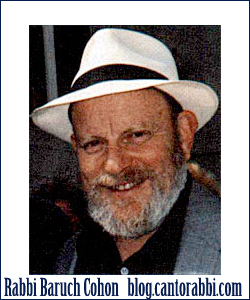This week we will read in the 27th chapter of Numbers the plea of five women. It seems that a man named Zelophehad the name sounds better and easier in Hebrew, Tzlof-khod (two syllables, not four) had a family of daughters: Mahlah, Noa, Khaglah, Milcah and Tirtzah. No sons. He died. The Israelite nation was camped east of the Jordan, and all the Hebrews were looking forward to the land they would soon conquer and possess. Who would take over Tzlofkhods property? Who could inherit it?
His daughters appealed to Moses. Inheritance customarily passed to a son. If there was more than one son, the oldest got a double portion. Daughters were expected to get married and live on their husbands property. Before marriage they could live in their brothers home. No brothers no home. And here were five young girls, not yet married, who might become homeless beggars. They had good reason to appeal.
Now we might ask why do they state their case at this time? Nobody had any land yet. The Land of Israel was on the other side of the Jordan. A dangerous crossing and many battles still stood between them and any land settlement. One reason for their timing might be that they were from the tribe of Menashe. Later, in chapter 32, we will read that half of that tribe joined with the tribes of Reuben and Gad to get permission to send their soldiers to fight for the land with the other tribes, and then themselves to settle on the East Bank. If Tzlofkhod belonged to that half of Menashe, his family property was already to be assigned.
In any case, the Five Daughters raise the issue of inheritance and Moses gets a ruling. Once the land is divided, each property is to stay in the family that receives it. Under Divine direction, Moses sets out the order of inheritance: Sons first. If no sons, daughters. If no daughters, the owners father. Without him, brothers of the owner. Lacking those, next in line are brothers of the owners father, and then the closest living relative. So here we have a law more than 3,000 years old that gives property rights to women. Limited, to be sure, but firm.
One more requirement characterizes this law: the property must remain in the tribe. While the Five Daughters take possession of their fathers inheritance, they are under orders to marry men of Menashe. Even within the Jewish people and the Jewish state, each tribe had an assigned territory and assigned boundaries which had to remain fixed. Individual families and their individual plots of land were part of that territory. Logically, if one of our five ladies chose to marry a man from Judah or Issachar, she would have to give up her share of the property and move to her husbands home.
In a tribal society, intermarriages generally resulted from war, and frequently involved slavery and brutality. When inheritance was involved, unfair results inevitably followed. So the laws of inheritance were quite strict. Of course several important Biblical narratives concern exceptions to those laws. Tzlofkhods daughters were not the first to challenge them. The Patriarchs themselves made exceptions. Abraham chose Isaac as his heir, not the older son Ishmael. Jacob bought the birthright from his senior twin Esau, and then deprived his own firstborn Reuben of the primogeniture rights as punishment for bedding his fathers concubine. And the widow of an intermarriage named Ruth entered Judaism and its people wholeheartedly, to become the ancestor of King David. But with all the exceptions, the inheritance both physical and spiritual stayed home.
What we bequeath to our sons and daughters can be real estate, or trust funds, or heirlooms or just love and memories. Lets educate them to keep it within the borders of our great heritage.


